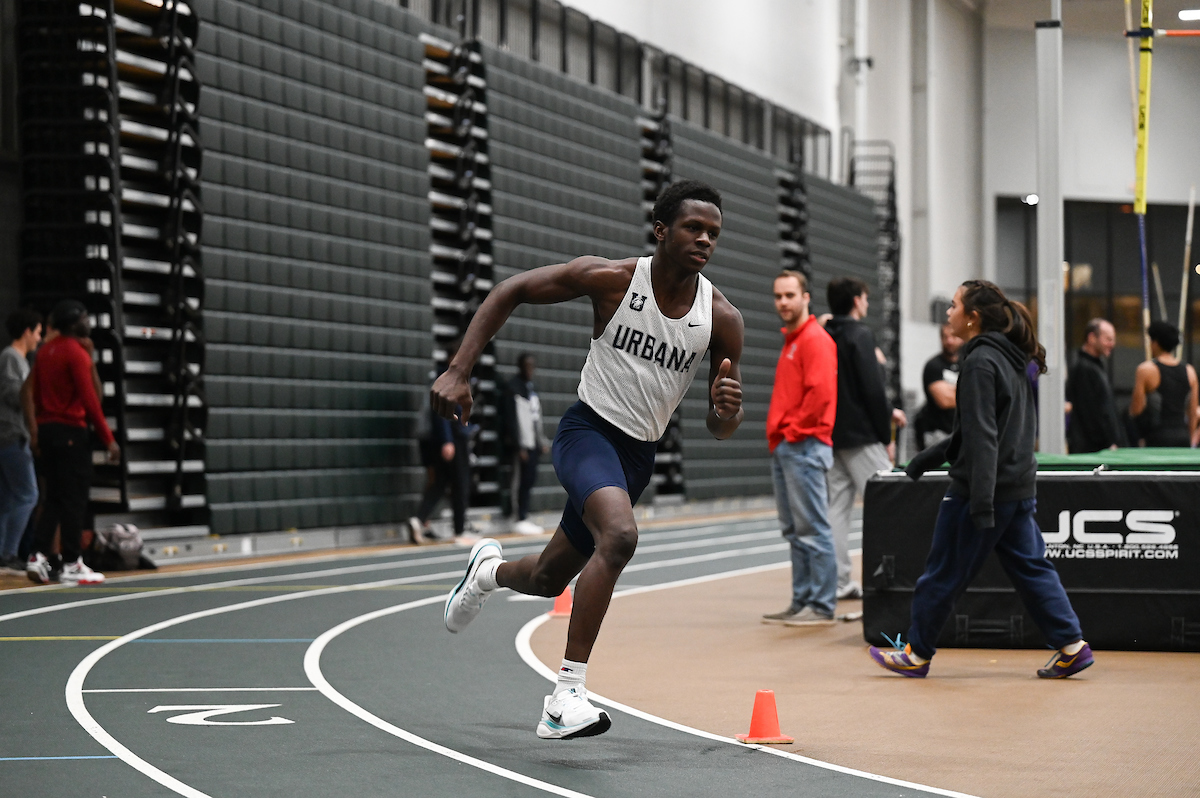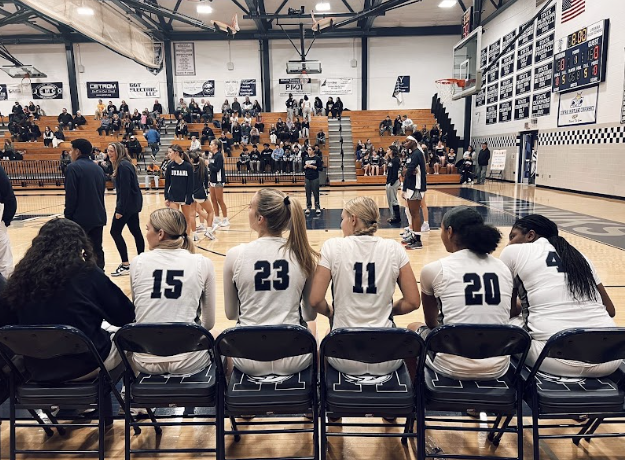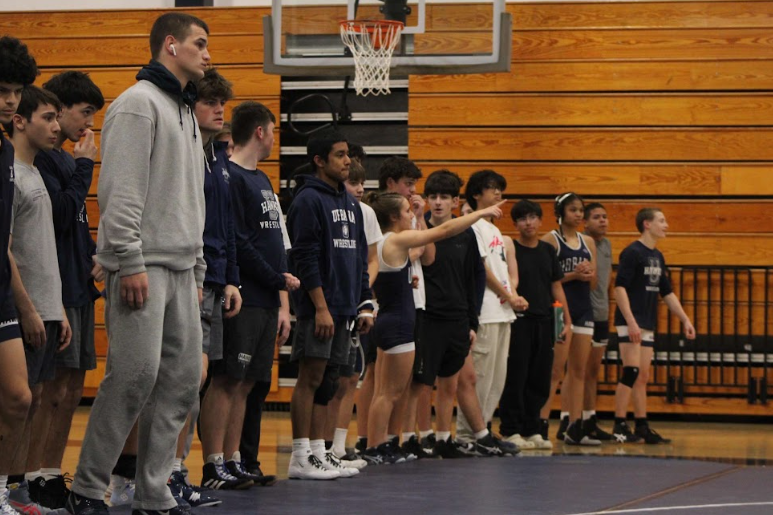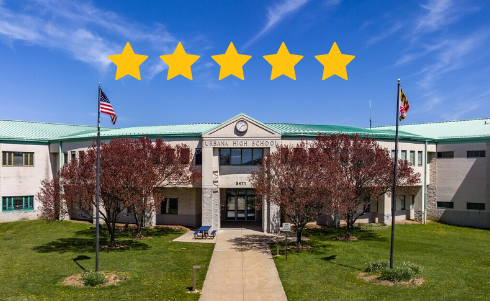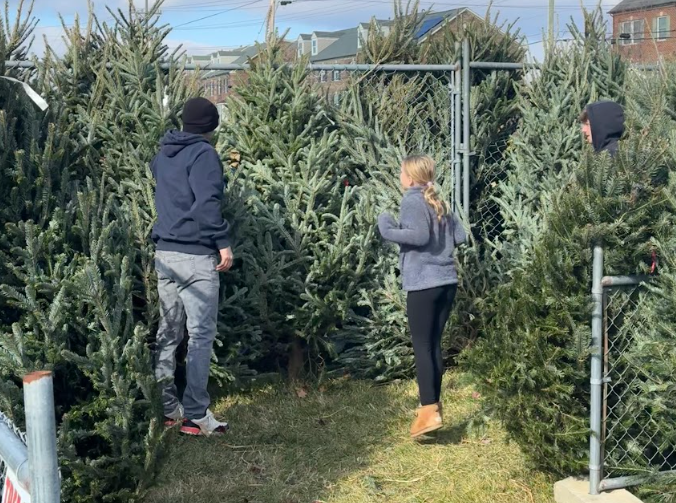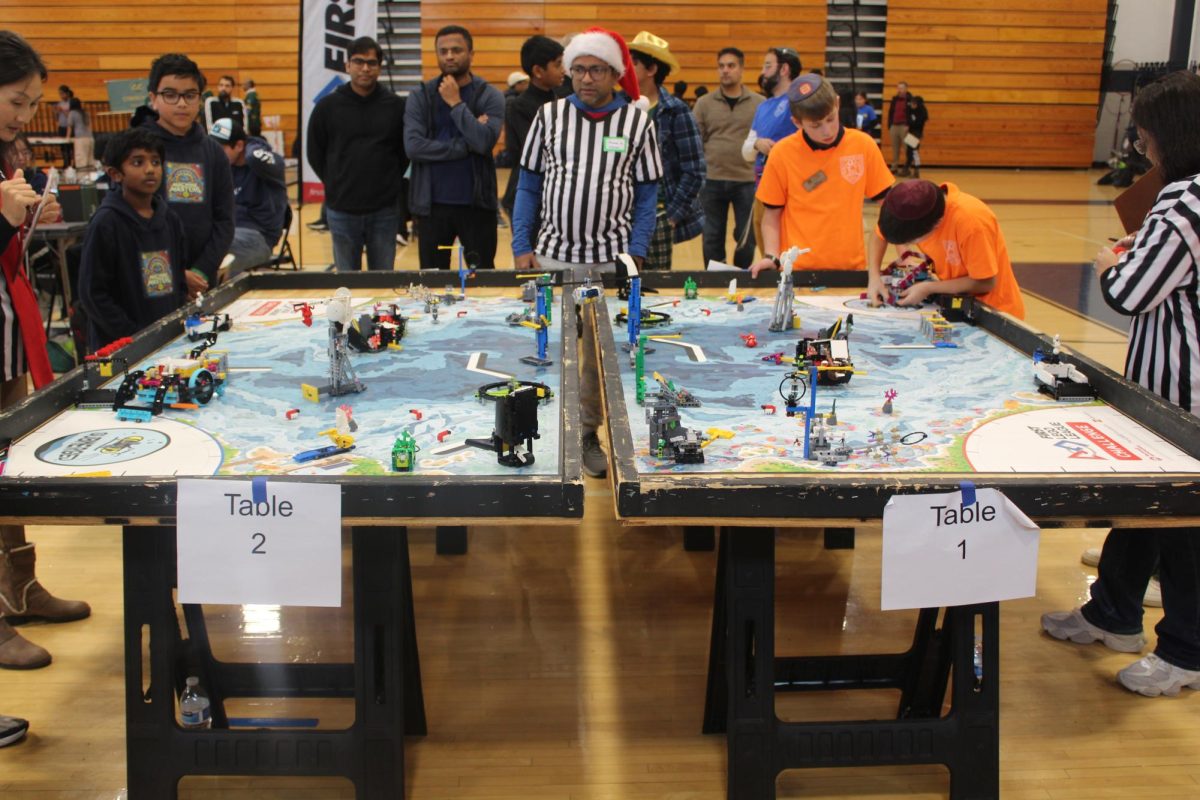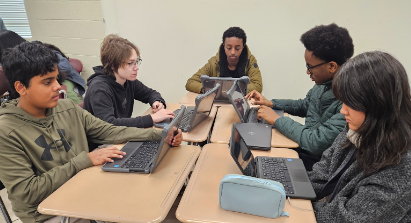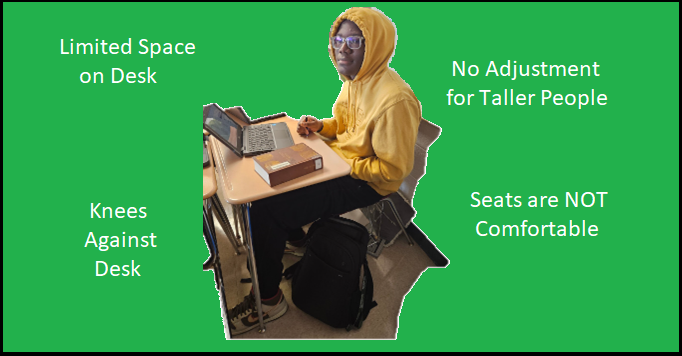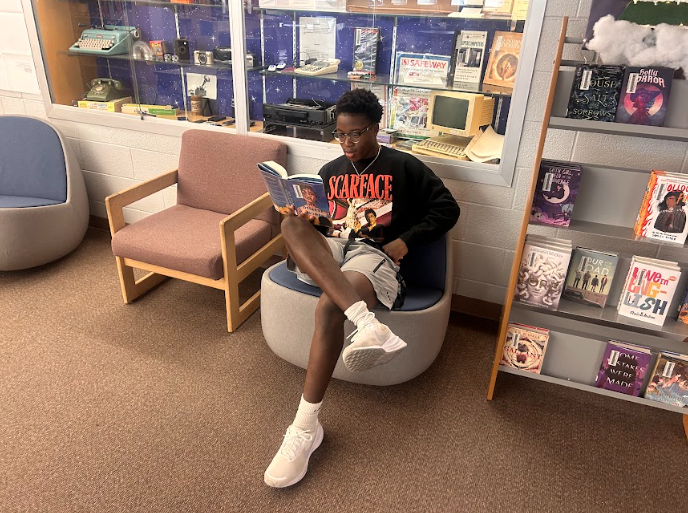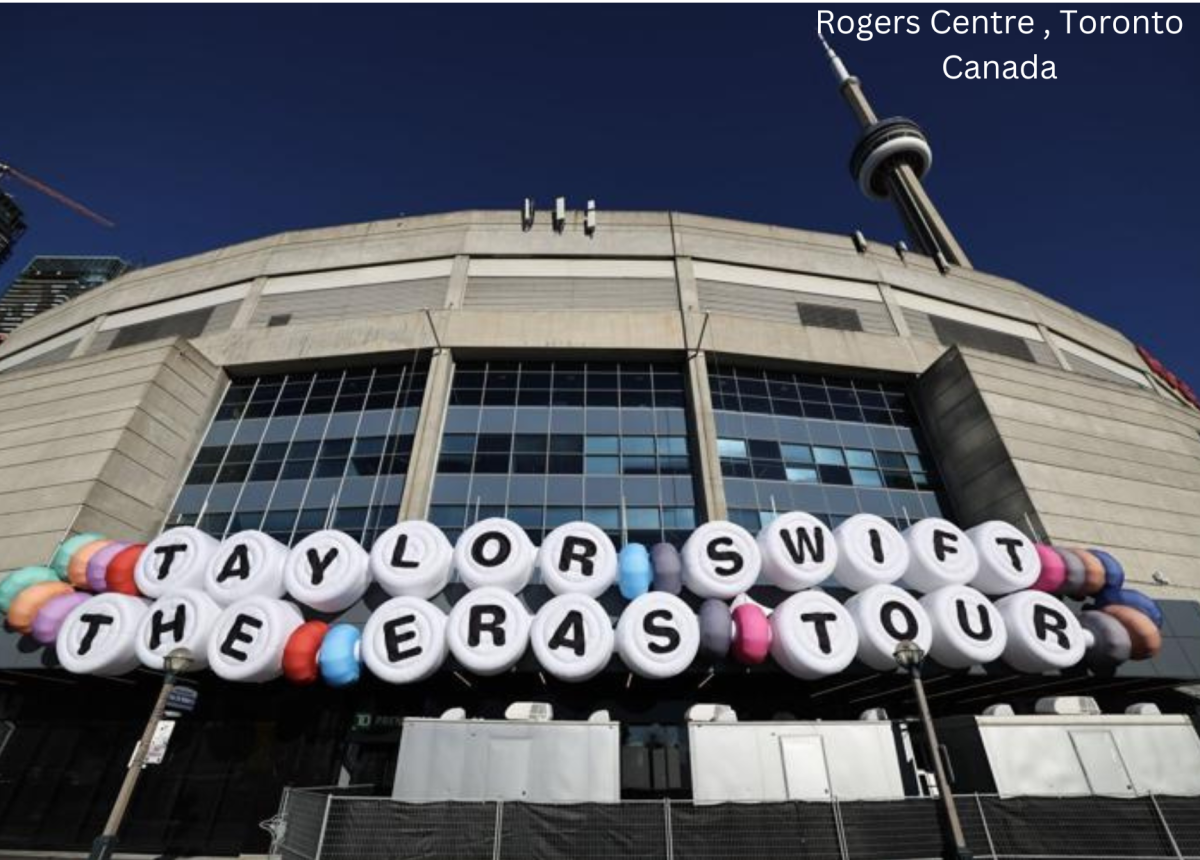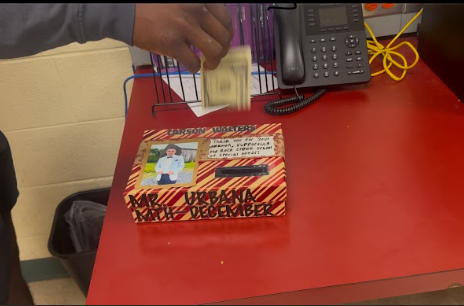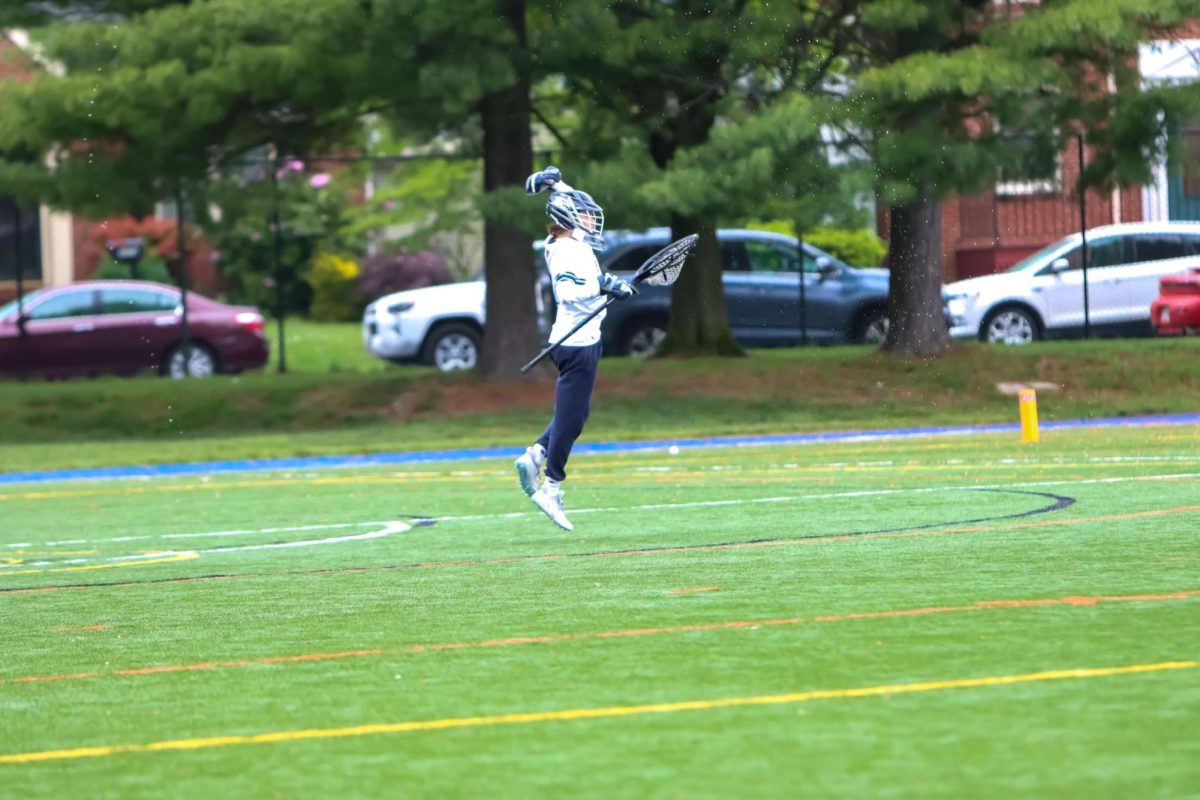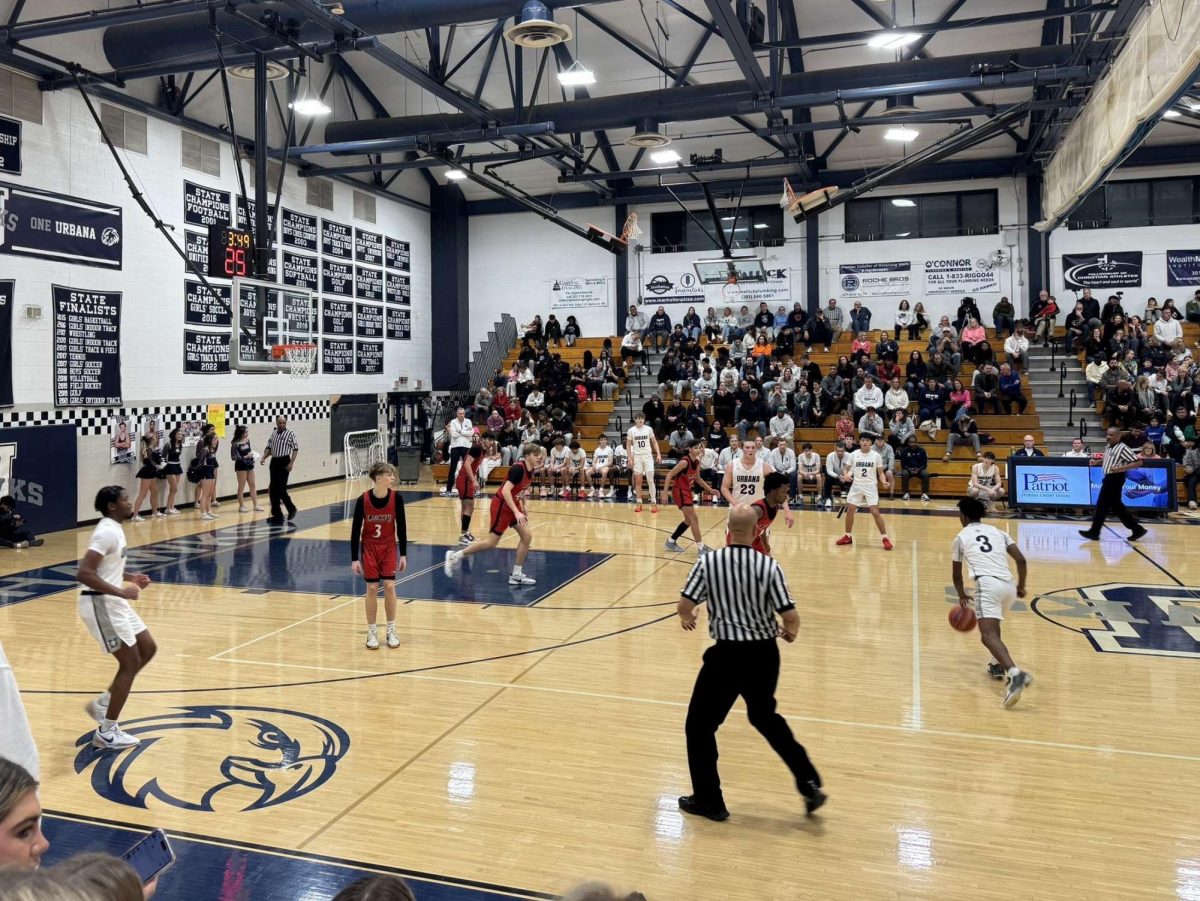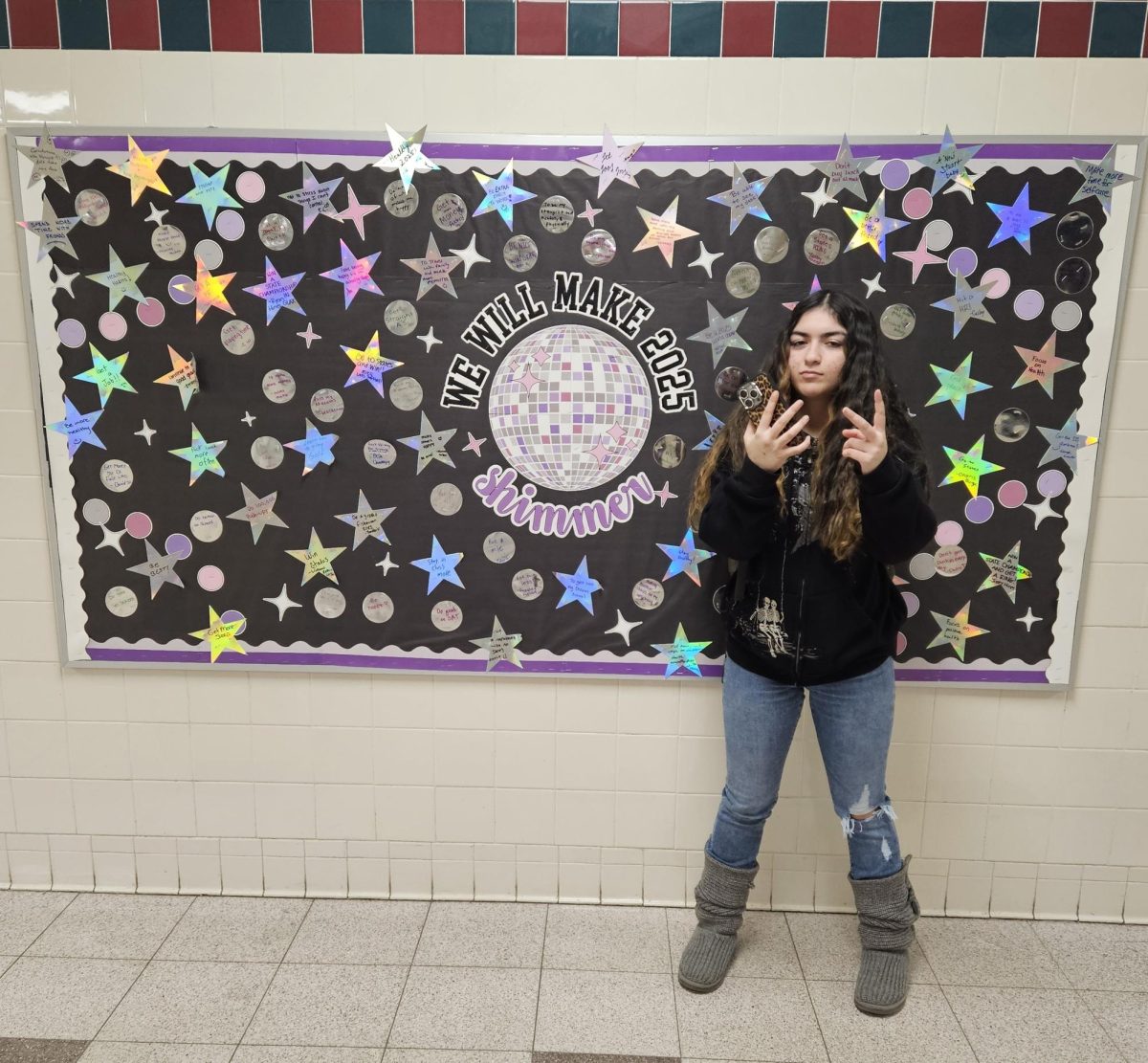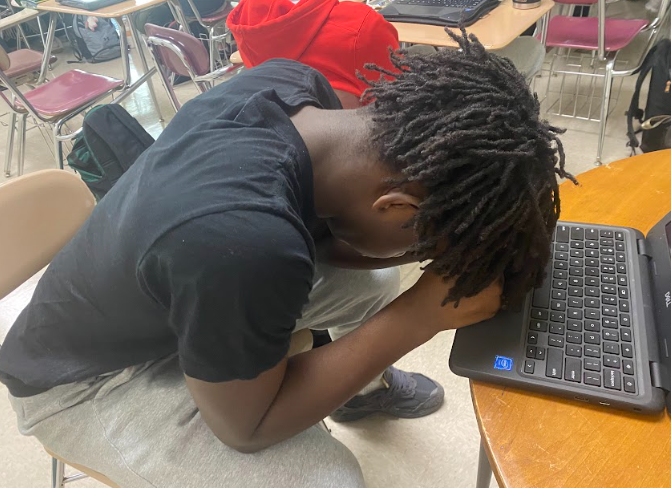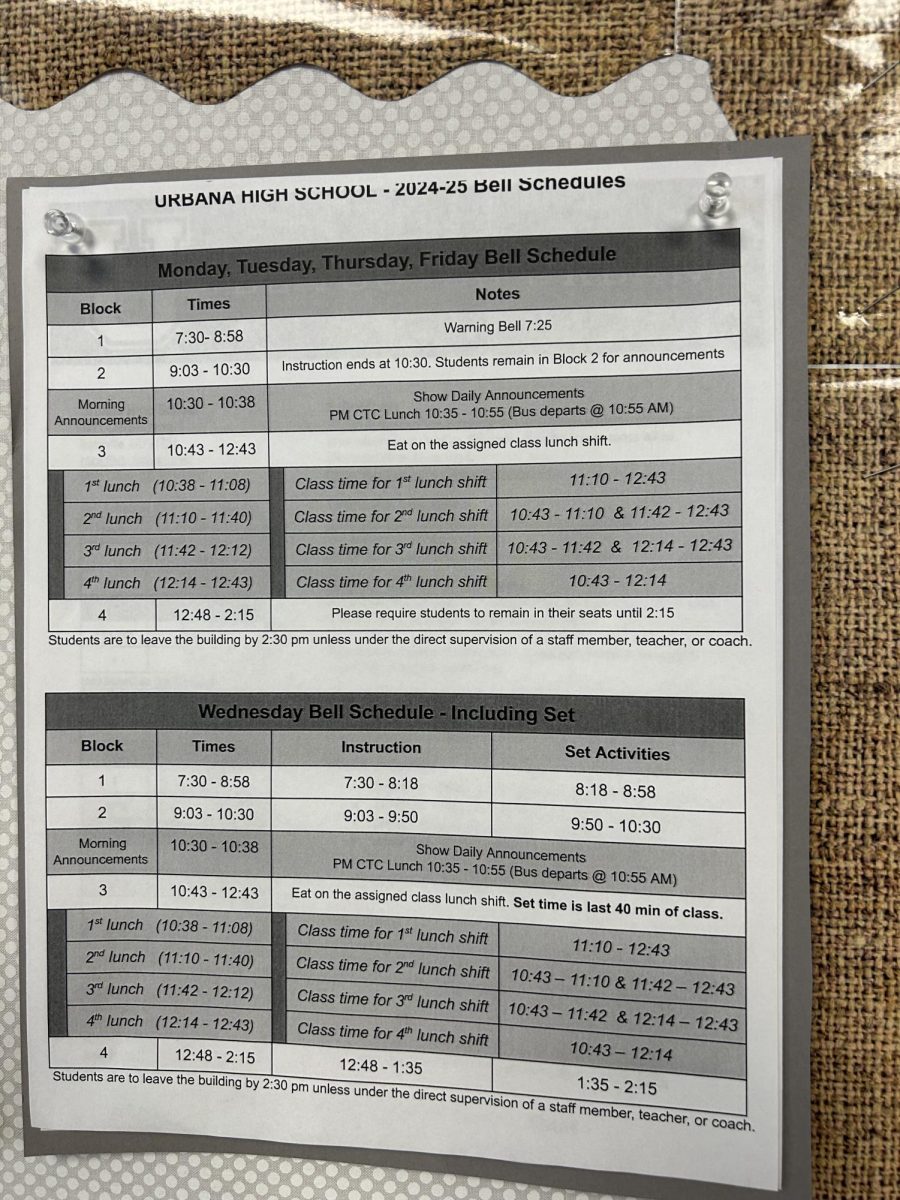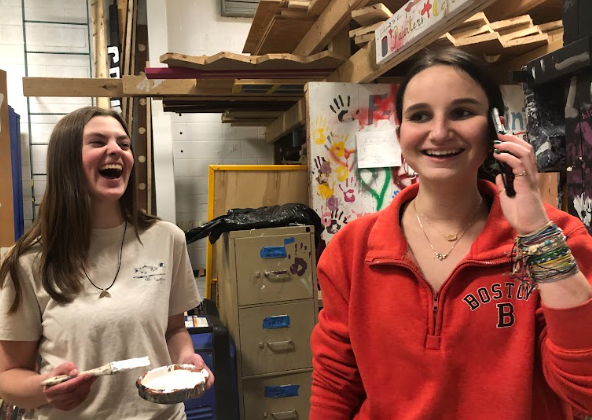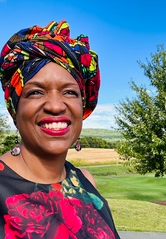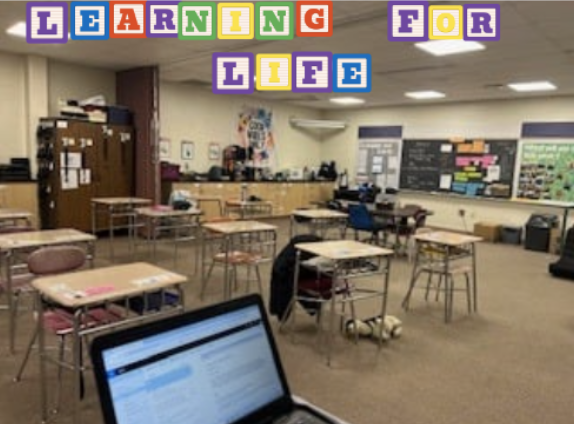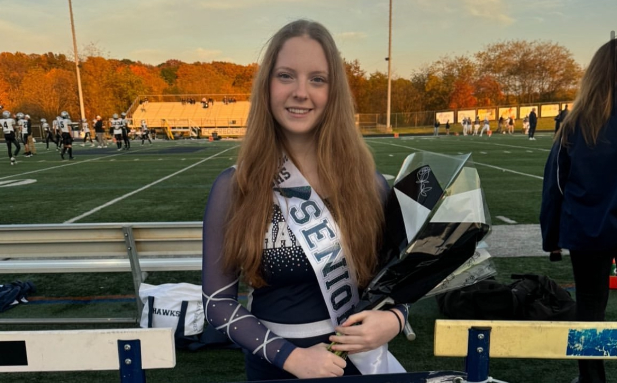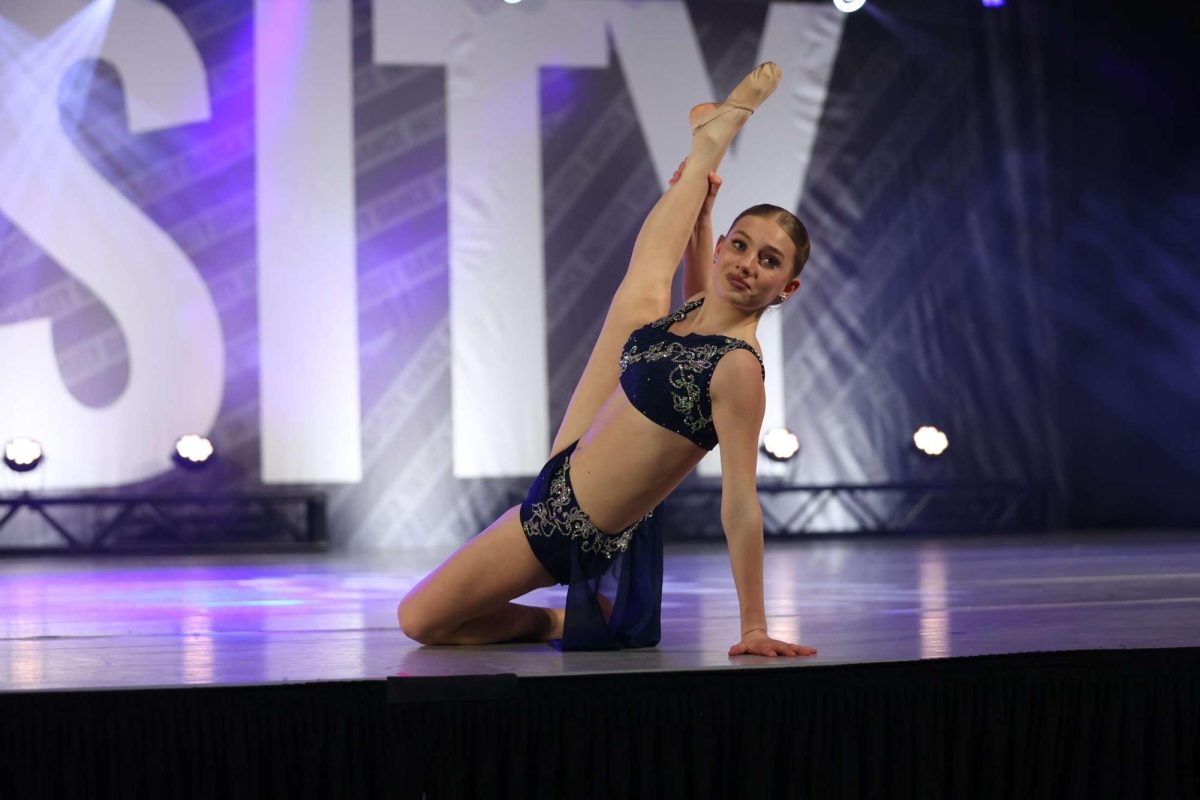White House Correspondent Visits UHS
Bill Plante of CBS News Shares his Knowledge and Experiences with Students
November 18, 2014
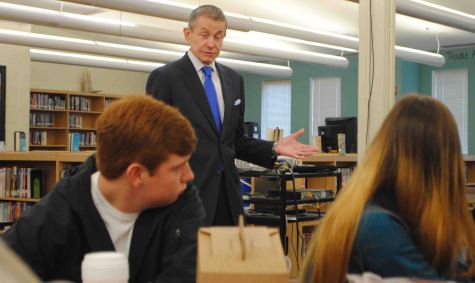
Bill Plante, Senior White House correspondent visited UHS on October 6. The beginning of his presentation focused on the Civil Rights Movement, and concluded with time for questions.
On October 6th, Bill Plante, the Senior White House Correspondent for CBS News, visited Urbana High School to discuss the American Civil Rights Movement with English teacher Del Hayes’ freshman English class. Students from English teacher Dave Britton’s IB English class were able to witness the presentation as well.
“We were reading the novel Night, obviously focusing on racial and ethnic discrimination and then transitioning into To Kill a Mockingbird, which – of course – is about racial discrimination and Mr. Plante had walked with Martin Luther King on the walk from Selma to Montgomery and had firsthand experience of the riots and the Freedom March in Alabama and covered the events that led up to the Civil Rights Amendment. The connection was with my student – her father is a White House Correspondent for CBS and his boss is the Chief White House Correspondent for CBS and it just seemed like an amazing opportunity to have someone come in who was an eyewitness to these important historical events,” said Hayes.
Having been a journalist for CBS News since 1964, Plante was able to cover several significant stories involving the American Civil Rights Movement. Plante says that the Civil Rights Movement is the most significant story that he has ever been assigned to cover.
“I was part of …a large group [of CBS people] that was sent to cover the story over various periods of time. As you know, it was something that was happening in many places and so a lot of us went to different areas of town to cover what was going on. I couldn’t have been happier, as a young reporter to be a part of something that was that big but I was not the main guy – I mean, I was just a just a very junior reporter so I had a chance to do some reporting and some stories but I was also learning as I went.”
After giving a somewhat short presentation describing the American Civil Rights Movement, Plante answered questions from students and teachers who were present. Some questions involved Plante’s experiences during the Civil Rights Movement, while others involved Plante’s journalistic career as a whole.
“Journalism is an opportunity to really have a sort of front seat in history. You’re able to watch what’s going on and tell the rest of the world about it. You get to travel a great deal and you meet people, you see things. It is an extraordinarily broadening experience. I’m sure that they tell you here [at Urbana High School] that if you read, you’ll open your mind and that’s true but the same thing is true if you have a chance to travel and be a part of the significant things that are happening in the world. So that’s why I wanted to be a reporter,” said Plante.
“I remember when I was still in my twenties and I went to Vietnam for the first time and I got on the plane to come home and there was a Chicago paper for some reason on the plane in Hong Kong. I was looking at the paper thinking God Almighty, we are worried about these stupid things and here is what is going on over here. Like I said, it opens your eyes and changes your whole perception of the world to travel. I mean even the little things, even like going to another country and discovering how people’s customs there are different than your own. Not better or worse, necessarily, just different. And expanding your universe to accommodate other people and, more important, I guess, other ideas.”
For students who are interested in pursuing a career in journalism, Plante had a few suggestions, mainly to “read widely because in order to be a good journalist, you really do need to know how to write and in order to write, you need to read. Be aware of what’s going on around you. Pay some attention to the news.”
Plante also suggested that students realize “that you cannot get all your news form one source because if you do, you cannot trust it. You have to sample widely, which is easier than it’s ever been because of the internet and social media.”
Hayes is glad that the his students seemingly enjoyed and appreciated Plante’s presence as much as he himself did. “I’ve always admired journalists and I admire the profession, so I thought it was a great honor to meet a journalist who has had such a distinguished career as he’s had. I think that was the most exciting thing for me, to personally meet someone who’s had as distinguished a journalistic career as he had, but then of course it was just fascinating to talk to people, to hear from people about important events in history who were eyewitnesses. It was exciting – it was an honor,” said Hayes.
Hayes said “I think anytime you can bring in a guest speaker who has been a witness to history, it makes those lessons that tend to be rather abstract to be real for [the students]. We can hear teachers lecture, we can read the books but there’s something distancing about that that when you meet people who have actually lived through these events and experienced them firsthand that really brings history to life. That makes the literature more relevant too and helps make the literature less abstract or just an exercise in scholarship that makes it real – tangible.”

